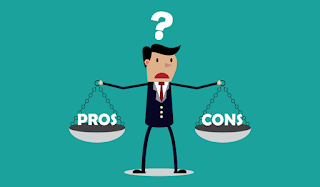The 9 Things You Should Think About Before Suing
The 9 Things You Should Think About Before Suing
This blog is brought to you courtesy of www.lawyerselect.ca
1 à
Does your case have merit?
First and foremost, do you have a genuine legal claim? Does
the law support your position? For example, let’s say you slipped and fell at a
grocery store injuring yourself; that doesn’t necessarily mean that you have a
claim against the store owner for a “slip and fall.” You’ll have to assess
whether the store owner was at fault for failing to ensure your safety. This is
both a factual and legal assessment, which a personal injury lawyer can best
assist you with.
2 à
Have you made a demand for compensation/reparation before you file suit?
This step is often overlooked, sometimes because there is
a lack of dialogue between the parties involved. You can avoid that by sending
the other party a “demand letter” where you can propose the terms of
settlement. This can be a very effective tool, because when people know they’re
at fault, most will do what they can to settle the matter, rather than get
dragged into court. Be careful in drafting a “demand letter” without some legal
assistance, as the terminology that is used and the things that are said may
affect your claim.
3 à
Have you explored the possibilities of settlement?
Try and be objective here: have you considered the other
party’s point of view? Do they have a valid defence, or worse, a counterclaim
against you? If so, then you’ll need to be reasonable and flexible by making
certain compromises or concessions. If the disagreement is over the dollar
value of the settlement, you may want to consider accepting a lesser sum than
you wanted. Often times, this will make practical sense, since you’ll end up
saving the money you would have had to pay in lawyer fees if the matter went to
trial. You can keep legal costs low by compromising, which avoids a prolonged
trial process.
4 à Even if you win at trial, will you be able to collect your money?
Take a real good look at the financial position of the
person or business that you’re suing. Do they have any money or assets that can
be used to satisfy a judgement in your favour? This may require some digging,
as any assets they may own may not be readily identifiable. A lawyer can assist
you in making that determination by conducting an investigation into the
financial status of the opposing party.
5 à Do you have the financial capacity to finance the litigation?
Simply put: can you afford the lawyer’s fees for a full
out trial? Some lawyers will agree to work on a contingency basis, meaning that
they won’t seek any legal fees up front from you, but rather, if successful,
they’ll take a cut of your winnings. Not all lawyers do this, and not every
matter is eligible for a contingency retainer setup. Even the lawyers who do
contingency work will have to assess the strength of your case before they
agree to that arrangement. Also, be cognizant of the fact that contingency
retainers do have some fees, like disbursements and court costs. At
LawyerSelect Lawyer Referral Service, we help you find a competent lawyer that
best suits your financial means.
6 à Do you have the time, energy and resources to go ahead with a lawsuit?
Not only is it emotionally draining, stressful, and
complicated, but it will require a lot of your time and energy. The various
stages of the lawsuit, like settlement conferences, depositions/discoveries,
and trial preparation take a lot of time and effort. You should consider what
effect that may have on your ability to work, run your business, or attend to
your family.
7 à Has time run out for you to file a claim?
Each claim is subject to a limitation period, which
varies depending on the nature of the claim. This means that even though you
may have a valid claim, you may be time-barred from bringing it because of the
Statute of Limitations. Your lawyer will tell you early on whether it’s
possible to still bring the claim, and what actions you can take to extend the
time period.
8 à Where will the lawsuit take place?
The issue of jurisdiction is a tricky one. You may be required
to file the lawsuit in another city or province, depending upon the specific
facts of the matter. If that’s the case, will you be able to manage the logistics
of suing in another locale. You should definitely keep an eye on costs here, as
you may be required to commute often for the different stages involved.




Comments
Post a Comment